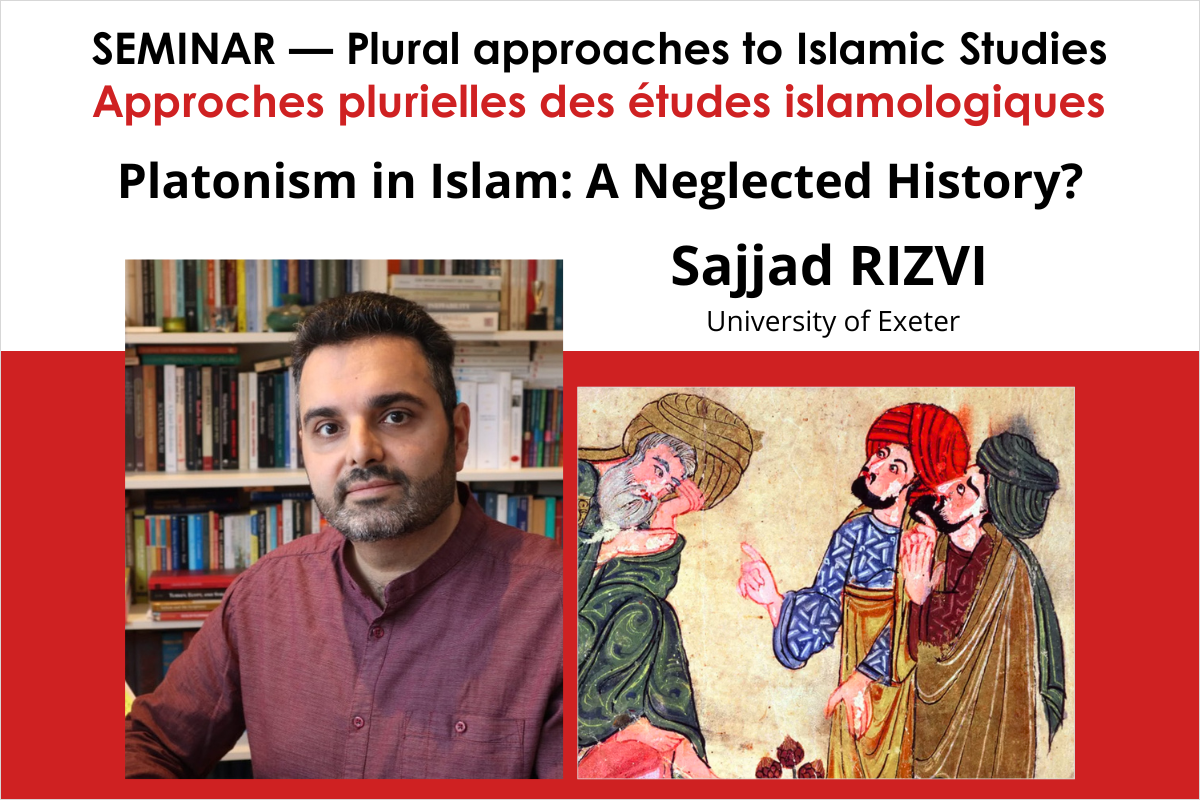SEMINAR - Plural approaches to Islamic Studies/Approches plurielles des études islamologiques
As part of the: Master in Islamic Studies and Intellectual Tradition in Islam/amU/ Master en études islamologiques et tradition intellectuelle en islam/amU
Amidex project: Tamam (dir. Olga L. Lizzini) amU/IFI/Amidex/Iremam/CNRS
14-15 April, 2025, 10:00-12:00 and 13:30-15:30, MMSH, Germaine Tillion Room, Aix-en-Provence. Contact: Fârès Gillon, fares.gillon[at]univ-amu.fr
Platonism in Islam: A Neglected History? - Sajjad RIZVI (University of Exeter)
The divine Plato has a haunting presence in Islamic thought – often invoked, and yet we have only a few fragments of his dialogues extant in Arabic. How did Plato come into Muslim cultures and what was Platonism? In this series in which we will interrogate the texts from the philosophical traditions, we examine the presence of Plato, his conception of philosophy, and his metaphysics from the classical period through to the crystallisation of a movement known as ‘illuminationism’ (ishrāq) beginning with Shihāb al-Dīn Suhrawardī (exe. 1991) and later variants of Islamic Platonism, in particular the Safavid sages, Mīr Dāmād (d. 1631), Mullā Ṣadrā (d. 1636), and Quṭb al-Dīn Ashkiwarī (d. c. 1684). The theoretical approach will be aligned with Pierre Hadot’s notion of philosophy as a way of life and the practice of spiritual exercises. While the course of philosophy in Islam is often considered to be the efflorescence of a neoplatonising Aristotelianism with a peripatetic substrate, this series attempts to reorient the focus of the philosophical in Islam towards Platonism as attitude, method, and metaphysics, and asks what a Platonic approach might contribute to our rethinking of a more granular, diachronic history of philosophy in Islam.
Sajjad RIZVI is Professor of Islamic Intellectual History at the University of Exeter. A specialist on philosophical traditions in Iran, he is currently completing a short manifesto on Islamic philosophy as global philosophy.
Monday 14 April
10:00-12:00:
The Divine Plato: texts, doxographies, and presences in Plotinian and Proclean texts.
13:30-15:30:
What was Platonism in Classical Islamic Thought? Godlikeness, Platonopolis, and metaphysical concerns
Texts from al-ʿĀmirī, Ikhwān al-ṣafāʾ and al-Fārābī.
Tuesday 15 April
10:00-12:00:
Ishrāq: Platonism as it became in Islam and the pursuit of wisdom and metaphysics in Suhrawardī and his commentators.
13:30-15:30:
Safavid Platonisms: Mīr Dāmād on Platonic Forms, Mullā Ṣadrā on conception of philosophy, Ashkiwarī on the imaginal
What is Platonism in Islam?
